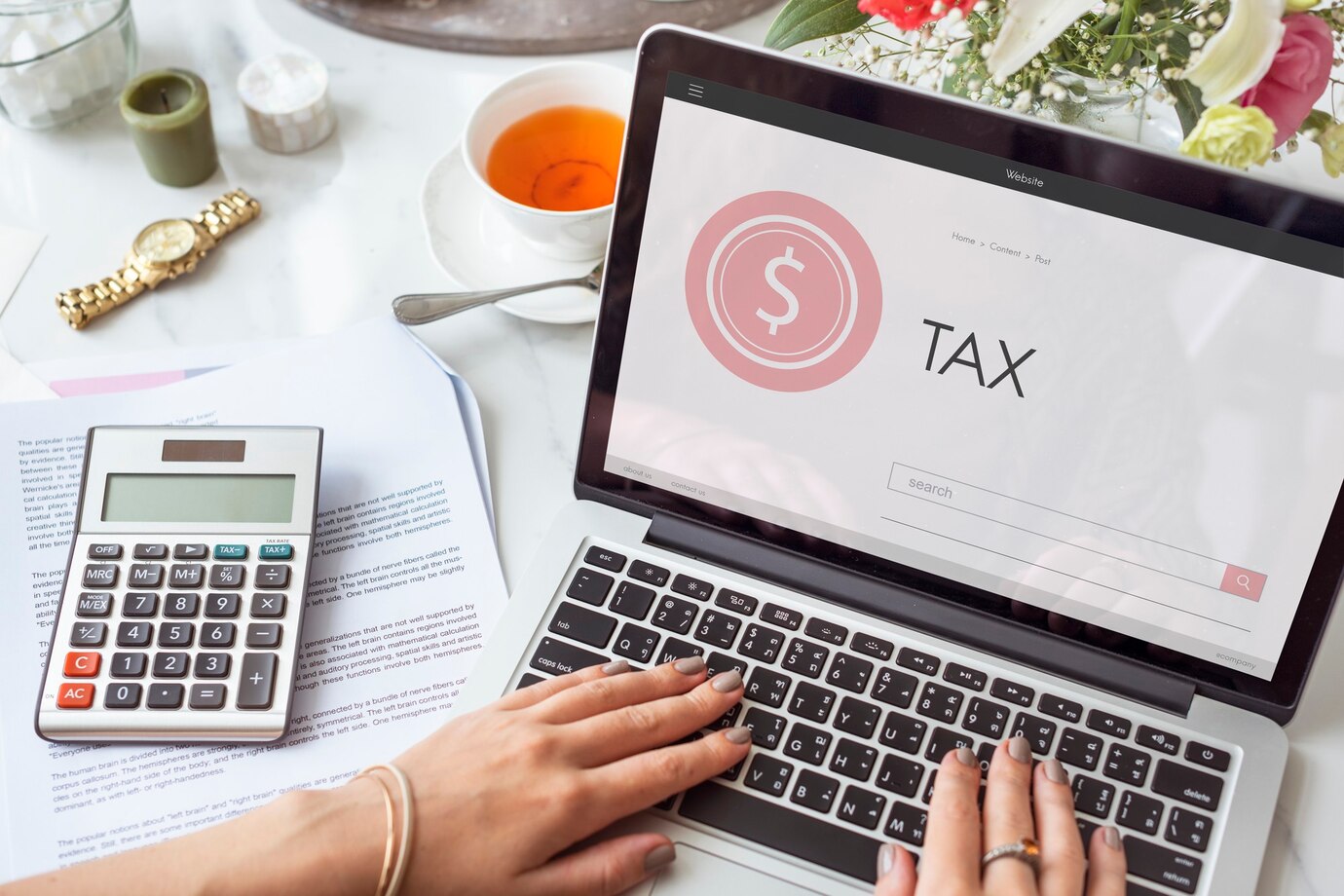
How to Reduce Your Tax Bill Legally
Paying taxes is essential for financial responsibility. But you shouldn’t pay more than necessary. Tax planning helps people and businesses lower their tax bills. They can do this legally while following HMRC rules. Innovative tax-saving strategies can increase your deductions. They also help you make the most of tax reliefs and allowances. This way, you can hold on to more of your earnings.
This guide explains the best legal ways to save on taxes. You’ll learn to make smart financial choices that help your profits. Read more to reduce the tax bill.
Legal Tax-Saving Strategies

1. Maximise Tax-Deductible Expenses
One of the simplest ways to reduce your tax bill is to take full advantage of tax-deductible expenses. Deductions lower your taxable income, meaning you owe less in taxes overall.
Common Deductible Expenses for Individuals and Businesses
For individuals, deductible expenses may include:
- Mortgage interest relief (for buy-to-let landlords)
- Student loan repayments
- Charitable donations through Gift Aid
- Work-related expenses (e.g., uniforms, tools, and professional subscriptions)
- Pension contributions
- Medical costs exceeding a certain threshold
For businesses, deductible expenses can include:
- Office rent and utilities
- Business-related travel expenses
- Employee wages and benefits
- Equipment, supply costs, and software subscriptions
- Marketing and advertising expenses
- Insurance premiums for business operations
- Training and professional development costs
Keeping Records to Support Deductions
Keep your records and receipts organised. This way, you can claim deductions easily for all eligible expenses. Accounting software or a tax pro can make things easier and reduce mistakes. HMRC requires individuals and businesses to keep records for at least six years.
2. Contribute to Tax-Advantaged Accounts

Investing in tax-advantaged accounts can reduce your taxable income. This also helps you save for the future.
Retirement Savings (SIPPs, Workplace Pensions)
Contributions to pension schemes lower your taxable income. They also qualify for tax relief at your marginal tax rate.
- Workplace Pensions: Contributions come from pre-tax earnings. Employers must add at least 3% of qualifying pay.
- Self-Invested Personal Pensions (SIPPs): Self-employed individuals can make tax-efficient contributions with relief of 20% to 45%, depending on income.
- Annual Allowance: The maximum tax-relieved pension contribution is currently £60,000 per tax year, subject to earnings.
- Carry Forward Rule: If you haven’t used your full pension allowance in the last three years, you can carry it forward.
ISAs (Individual Savings Accounts)
- Stocks and Shares ISAs and Cash ISAs allow tax-free growth and withdrawals.
- Lifetime ISA (LISA): Offers a 25% government bonus for home purchases or retirement savings, with a £4,000 annual contribution limit.
- Innovative Finance ISAs: Allow tax-free interest on peer-to-peer lending investments.
3. Take Advantage of Tax Credits and Allowances
Tax credits and allowances directly reduce the amount of tax you owe, making them valuable for lowering your overall tax burden.
Personal Allowances and Tax-Free Thresholds
- Personal Allowance: Most UK taxpayers can earn up to £12,570 before paying income tax.
- Marriage Allowance: A lower-earning spouse can transfer £1,260 of their Personal Allowance to a higher-earning partner, saving up to £252 in tax.
- Dividend Allowance: The first £1,000 of dividend income is tax-free.
- Capital Gains Tax Allowance: Gains up to £6,000 (2023/24) are tax-free before CGT applies.
- Child Benefit Tax Relief: If you earn under £50,000, you can claim full Child Benefit without additional tax.
Work-Related Tax Reliefs
- Uniform Tax Rebate: Employees who must buy and maintain work uniforms can claim tax relief.
- Professional Memberships: Fees for industry-related organisations may be deductible.
- Employment Expenses: Travel, equipment, and home office costs may be eligible for tax relief.
- R&D Tax Relief for Businesses: Companies investing in research and development can claim significant tax relief.
4. Plan Your Investments Wisely
Investing with a tax-efficient strategy can help minimise taxes on your earnings.
Tax-Efficient Investment Strategies
- Invest in ISAs: Stocks and Shares ISAs shield gains from Capital Gains Tax (CGT).
- Hold Investments for the Long-Term: For longer than one year, investments may benefit from lower capital gains tax rates.
- Enterprise Investment Scheme (EIS) and Seed Enterprise Investment Scheme (SEIS): Offer generous tax reliefs for investing in UK startups.
Capital Gains Tax Reduction Methods
- Use Your CGT Allowance: The first £6,000 of capital gains is tax-free.
- Transfer Assets to Your Spouse: Married couples can transfer assets tax-free to maximise CGT allowances.
- Tax-Loss Harvesting: Selling underperforming investments to offset capital gains can reduce taxable income.
5. Structure Your Business for Tax Efficiency
Choosing the right business structure can impact how much you pay in taxes.
Choosing the Right Business Entity (Sole Trader, Limited Company, etc.)
Different business structures offer varying tax advantages:
- Sole Trader: Simplest structure, but income is taxed as personal earnings.
- Limited Company: Profits are subject to Corporation Tax (currently 25%), with dividends taxed separately.
- Partnerships: Profit is shared and taxed individually by partners.
- LLP (Limited Liability Partnership): Combines the benefits of partnerships with limited liability protection.
How Tax Deductions Vary for Different Structures
- Limited Companies: Business expenses, director salaries, and pension contributions are deductible.
- Self-Employed Individuals: Can deduct home office expenses, travel costs, and pension contributions.
- VAT Schemes: Some businesses benefit from VAT Flat Rate Schemes or Cash Accounting VAT.
6. Utilise Property Tax Reliefs
There are various ways to reduce your tax liability if you own property.
Rent-A-Room Scheme
- Homeowners renting a furnished room can earn up to £7,500 tax-free annually.
- If two people share the property, each can earn up to £3,750 tax-free.
Buy-to-Let Tax Efficiency
- Mortgage Interest Relief: Landlords receive a 20% tax credit on mortgage interest payments.
- Replacement of Domestic Items Relief: Costs of replacing furniture and appliances in rental properties are deductible.
- Private Residence Relief: Reduces capital gains tax when selling your main home.
7. Reduce National Insurance Contributions (NICs)
- Salary vs. Dividends: Limited company directors can pay themselves a lower salary and take dividends, reducing NICs.
- Voluntary Contributions: Ensure you pay enough NICs to qualify for the State Pension.
Reduce Your Tax Bills With Smart Tax Saving Strategies

Reducing your tax bill legally requires careful planning and smart financial decisions. Individuals and businesses can significantly lower their tax liabilities by maximising deductions, contributing to tax-advantaged accounts, leveraging tax credits, and structuring investments wisely.
By following the above tax planning strategies, take action today to maximise your savings and reduce your tax burden.